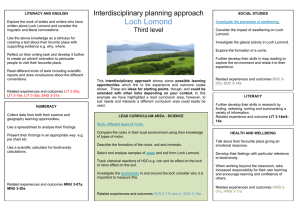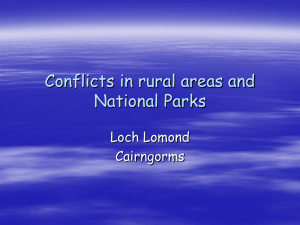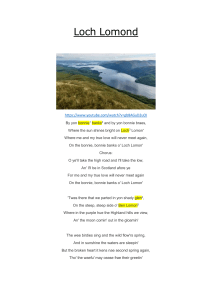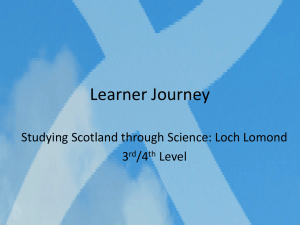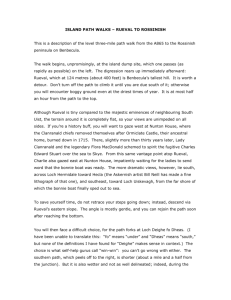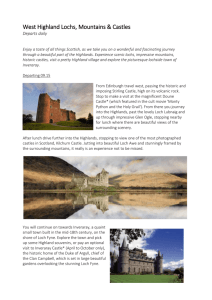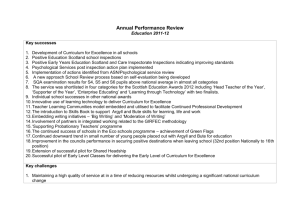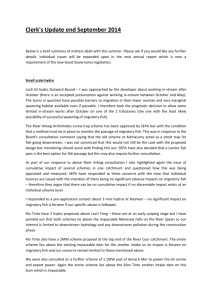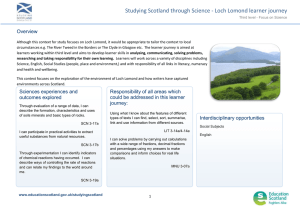Luss_Primary_School_W@W_story
advertisement
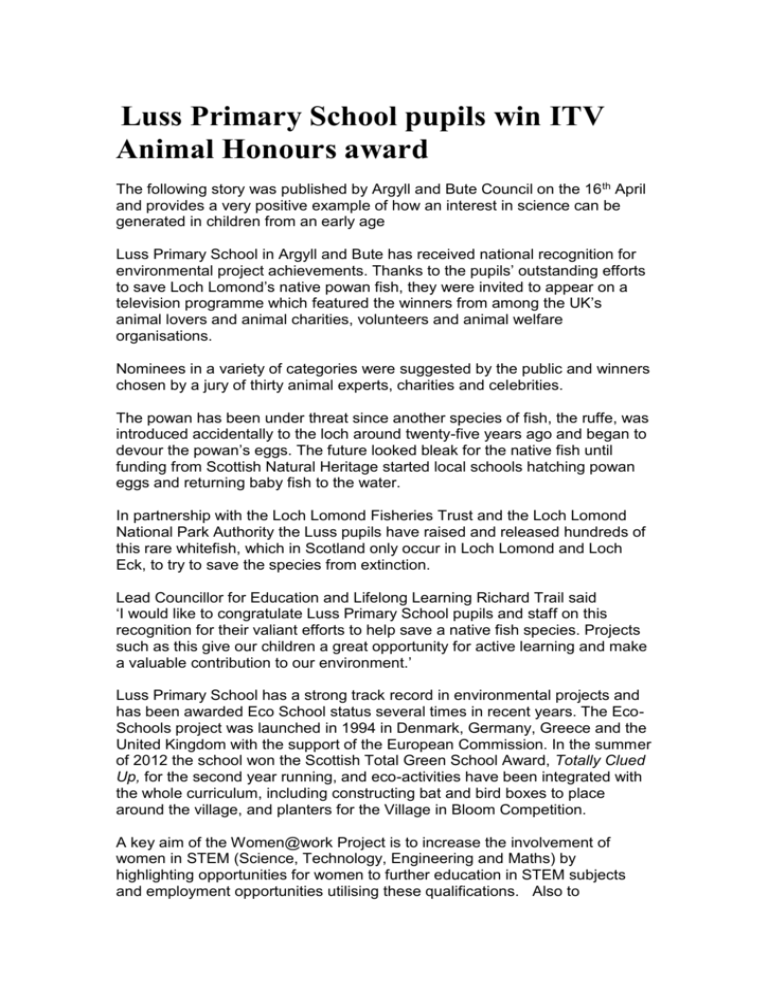
Luss Primary School pupils win ITV Animal Honours award The following story was published by Argyll and Bute Council on the 16 th April and provides a very positive example of how an interest in science can be generated in children from an early age Luss Primary School in Argyll and Bute has received national recognition for environmental project achievements. Thanks to the pupils’ outstanding efforts to save Loch Lomond’s native powan fish, they were invited to appear on a television programme which featured the winners from among the UK’s animal lovers and animal charities, volunteers and animal welfare organisations. Nominees in a variety of categories were suggested by the public and winners chosen by a jury of thirty animal experts, charities and celebrities. The powan has been under threat since another species of fish, the ruffe, was introduced accidentally to the loch around twenty-five years ago and began to devour the powan’s eggs. The future looked bleak for the native fish until funding from Scottish Natural Heritage started local schools hatching powan eggs and returning baby fish to the water. In partnership with the Loch Lomond Fisheries Trust and the Loch Lomond National Park Authority the Luss pupils have raised and released hundreds of this rare whitefish, which in Scotland only occur in Loch Lomond and Loch Eck, to try to save the species from extinction. Lead Councillor for Education and Lifelong Learning Richard Trail said ‘I would like to congratulate Luss Primary School pupils and staff on this recognition for their valiant efforts to help save a native fish species. Projects such as this give our children a great opportunity for active learning and make a valuable contribution to our environment.’ Luss Primary School has a strong track record in environmental projects and has been awarded Eco School status several times in recent years. The EcoSchools project was launched in 1994 in Denmark, Germany, Greece and the United Kingdom with the support of the European Commission. In the summer of 2012 the school won the Scottish Total Green School Award, Totally Clued Up, for the second year running, and eco-activities have been integrated with the whole curriculum, including constructing bat and bird boxes to place around the village, and planters for the Village in Bloom Competition. A key aim of the Women@work Project is to increase the involvement of women in STEM (Science, Technology, Engineering and Maths) by highlighting opportunities for women to further education in STEM subjects and employment opportunities utilising these qualifications. Also to encourage those who are not currently considering STEM subjects to consider them when knowing the opportunities they can bring. This was the central theme in this year’s conference ‘A Bright Future for Women in STEM’. We would love to hear about other examples of projects or activities with similar aims and to look for opportunities for joint working.
